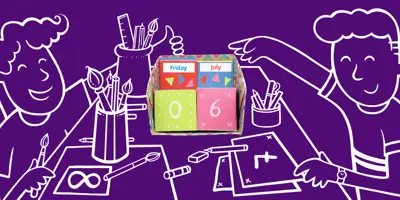12 people found this helpful
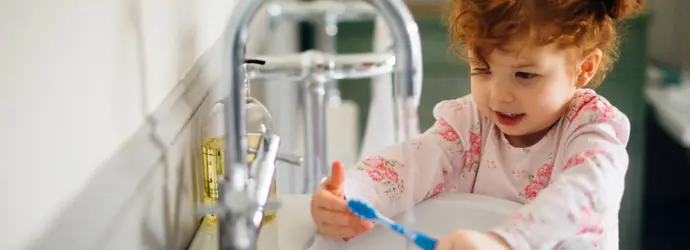
Playing, learning and exploring are top of kids’ agenda, so sometimes we need to remind them to take care of their personal hygiene, too. It’s essential for their self-confidence, their health and their relationships, but that doesn’t mean it has feel like a chore – for you or for them. These personal hygiene tips for kids will help them take pride in their personal hygiene, and have them on the road to independence in no time.
Why is personal hygiene important?
Before laying down any personal hygiene rules, your child needs to understand the answer to that all-important question: ‘why is personal hygiene important?’ More than anything, your child will learn this by observing your own hygiene habits
Sit your child down and explain to them the reasons why good personal hygiene for kids is key. These include:
- Preventing the spread of germs, which can make you ill.
- Making you feel healthier and better about yourself.
- Helping you to improve relationships with other children and people.
Create a daily personal hygiene checklist to help establish your family’s personal hygiene for kids’ routine. You can ask them to decorate it with colourful pens and stick this on their bedroom wall. So, what should be on that list? Here are six personal hygiene tips for kids to get you started.
More than anything, kids will learn good hygiene habits by example, so try to expose them to your own hygiene routine as much as possible. Why not make teeth-brushing time a family activity?
1. Dental personal hygiene: brush teeth twice a day
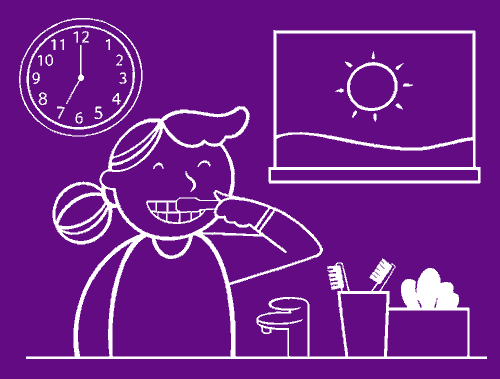
Creating positive associations with brushing their teeth can help kids to develop long-lasting good personal hygiene habits. Make it fun right from the start by encouraging them to squeak like a mouse (for brushing the front teeth) or roar like a lion (for brushing the back teeth), or sing nursery rhymes to help keep them entertained for the full two minutes. Explain to them how brushing teeth keeps teeth healthy, and why healthy teeth are important, especially when it comes to eating all their favourite crunchy foods.
2. Personal hygiene for kids: washing hands
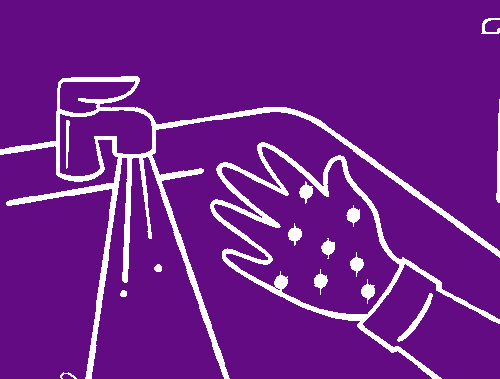
Hand washing can feel more like a chore for kids until they understand the real importance of personal hygiene rules. Explaining to kids that germs are little bugs that can cause nasty illnesses is a good start, but help illustrate the concept of bacteria with the glitter game.
Cover their hands in glitter, explaining how germs are just like invisible bits of glitter, and show them how the glitter transfers to everything they touch. Ask them to try and wash all the glitter off, explaining how it’s important to do this to stop the spread of the ‘invisible glitter’ – especially before meals and after going to the toilet.
3. Personal hygiene tips for kids: use a tissue
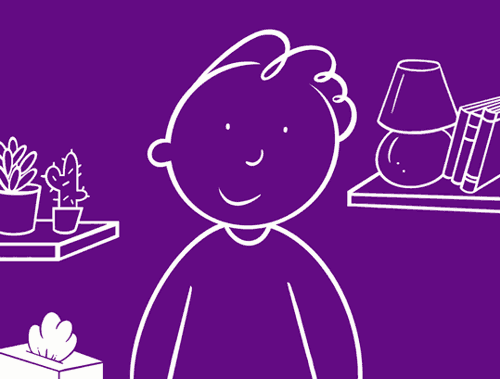
Kids who haven’t got to grips with personal hygiene rules yet tend to wipe their hands and noses on the nearest thing available – which is usually their sleeve! Help them to get into the habit of good personal hygiene for kids by keeping a soft roll of tissue paper, like handy. Explain to them that it’s softer on their noses, and it’ll stop germs spreading to the people they love.
Cushelle toilet tissues are soft and gentle on small noses. Explain to kids that sneezing and blowing their nose into the tissue and throwing it away will help stop the spread of germs to their friends and family.
4. Change underwear everyday
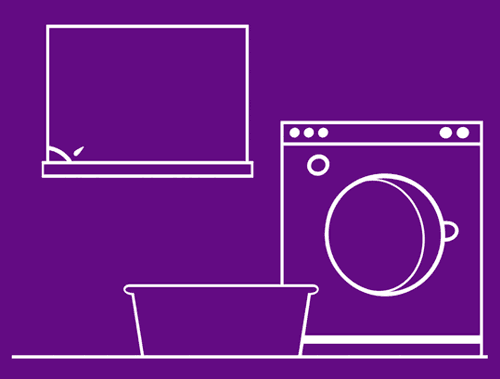
It sounds like common sense to you and I, but the importance of changing underwear every day is something kids need to be taught. Help them understand the difference between a good smell and a bad smell by showing them how lovely fresh laundry smells when it’s just come out of the wash. Explain to them that they’ll smell just as lovely if they change their underwear every day.
Nurture their personal hygiene independence by letting them choose their own underwear, encouraging them to put their dirty clothes in the laundry basket and asking them to help you with the laundry – it’s not just mum or dad’s job after all!
5. Take a bath or shower regularly
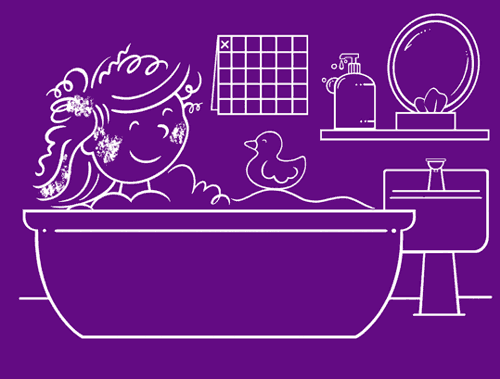
Teach kids that taking baths and showers is not only one of those essential personal hygiene rules, but that it’s also fun and relaxing. Turn it into a pamper session with bubbles, or into playtime with fun toys, so it’s is something they look forward to.
6. Regularly clip nails
Young children often put their fingers in their mouths, and because long nails can harbor bacteria, it’s best to keep them short. If your child finds having their nails cut uncomfortable, try playing music, singing a song or doing it while they’re in the bath, and explain to them that it will help them feel more comfortable. It’ll help them feel relaxed and create happy associations with nail clipping personal hygiene.
Encourage the whole family to lead by example to help little ones familiarise themselves with these personal hygiene rules. It’s then just a matter of time before they’ll be able to master everything on this daily personal hygiene checklist all by themselves.
Related articles
Potty Training Tips: How to Potty Train a Boy
Want to know the best age to potty train a boy, or how potty training boys differs from girls? Read on for the essential potty-training tips for boys.
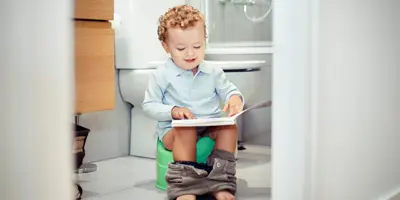
5 Tips for Night-Time Potty and Toilet Training
With these 5 tips on how to potty train at night your little one will soon be dry and you can wave goodbye to middle-of-the-night nappy changes. Click for more.
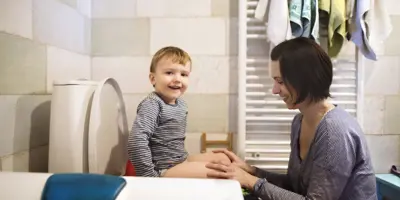
The potty-to-toilet transition: 7 essential toilet training tips
Do you think your child is ready to make the transition from potty to toilet? Read this guide for toilet training tips from the experts at Cushelle.
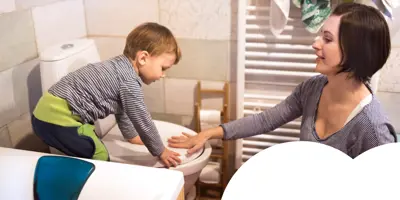
How (and When) to Do Potty Training
Potty training can be tricky, but a little patience and some smart parenting tricks can make all the difference. Find out how to potty train kids here!
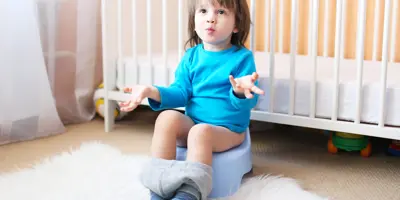
How to craft the perfect morning routine for school
Does your morning routine for school always end up in everyone leaving the house late? Read on for tips to help you to craft the perfect morning routine.

How to Make a Perpetual Calendar
This tutorial includes perpetual calendar ideas for children to make that will last year after year. Click to find out how to make a calendar for kids at home.
